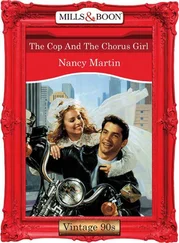In 1967, Peschel met Clara, a salesgirl at Capwell’s department store, and got her pregnant. They were married a few months before she started showing.
“How did you find out all of this?” Monk interrupted.
“For starters, the police maintained a confidential file on him.”
“If it was confidential,” I asked, “how did you see it?”
“Nick has sources in the SFPD,” Danielle said. “I also looked at all relevant federal, state, county, and local records and, posing as an obituary writer for the Chronicle , I interviewed Carol Atwater for details on his early life.”
Monk nodded, impressed.
I hoped he wasn’t drawing any comparisons between her efforts and mine on his behalf. I’d never done any research like that for him. For one thing, I wouldn’t know how to begin. For another, she had resources I couldn’t hope to match.
Even so, I felt a pang of insecurity and a cramp of jealousy. I tend to internalize my anxieties.
Danielle continued briefing us on what she’d learned: Lucky Duke’s luck ran out in 1970 and he was stricken with throat cancer. Peschel took over running the bar. And when Duke died nine months later, Peschel borrowed money from Fisset to buy the business from Duke’s widow and rename it Bill’s Tavern.
To pay off the debt, Peschel let Fisset use a back room at the bar to run a private poker club.
After Fisset was gunned down outside of Alioto’s restaurant on Fisherman’s Wharf in 1973, Peschel secretly gave the police tips that helped nab the shooter and avert a mob war.
“By working in the Tenderloin for years and associating with Fisset, Peschel established his street cred with the low lifes and criminals,” Danielle said. “They saw him as one of them.”
“He was,” Monk said. “And warty, too.”
“By helping the police catch Fisset’s killers and prevent a lot of bloodshed, he earned the trust of the police, who showed their gratitude by making him a paid informant and turning a blind eye to his various nickel-and-dime illegal activities to make ends meet.”
Something didn’t make sense to me. “If the tavern was such a dive, and Peschel was scratching and scraping for money his whole life, how was he able to sell his business for enough money to retire with his wife to Florida?”
“He sold the tavern for thirty-five thousand dollars,” Danielle said. “He became rich off of his InTouchSpace-dot-com stock and the sale of his Florida condo.”
“How did he luck into buying shares of InTouchSpace before it went big?”
“Word on the street, I guess,” she said.
“He was on the wrong street for that word,” Monk said, shrugging his shoulders. “Something doesn’t fit.”
“So what’s next?” I asked.
“We talk to the suspects,” Monk said. “But we don’t touch them under any circumstances.”
“Why not?” Danielle asked.
“Warts could run in the family,” he replied.
Mr. Monk and the Ties That Bind
The surveillance footage from the Dorchester Hotel was delivered by Lansdale to Disher’s desk on several CDs. The lobby, all the entrances and exits, the stairwells, and the elevators were covered by cameras. The various floors themselves were not.
“What kind of half-assed security system is that?” Disher said.
“I asked them the same thing,” Lansdale said. “Their reply was that they are a hotel, not a Vegas casino, and this isn’t a totalitarian state.”
“What is that supposed to mean?”
“They’re cheap and irresponsible,” Lansdale said. “But nobody could have gotten in or out of the hotel without being caught on camera.”
“Unless they climbed up the face of the building and entered through Braddock’s window.”
“Do you really think that’s possible?”
“Never rule out any possibility, even if it’s impossible,” Disher said. “The impossible is only impossible until it becomes possible. Why aren’t you writing that down?”
“Because it doesn’t make any sense.”
“It would if you had my years of experience on the mean streets. I’m giving you pearls of wisdom here. You’ll want to remember them.” Disher handed half of the CDs to Lansdale. “You look at these, I’ll go through the rest.”
Lansdale retreated to his desk and Disher stuck a CD into his computer.
For the next hour, Disher scanned through footage of the loading dock and the stairwell, but didn’t see any activity. There were no deliveries and nobody used the staircase.
When he was finished with those CDs, he started going through footage from the lobby. He was twenty minutes into that when he saw someone come in at ten p.m., go up the grand staircase to the conference area, and then disappear.
Disher glanced around to see if anyone was watching him. Lansdale was slouched in his seat, staring at his screen, going through elevator footage and taking notes. Disher turned back to his screen and fast-forwarded until he saw the same man come down the staircase and leave about thirty minutes later.
“Hey, Jackal, do we have any surveillance footage of the conference floors?”
Lansdale shook his head. “Nothing on the second and third floors, except the stairwells.”
“Anything unusual show up on the elevator footage?”
“Yeah, I was just about to tell you about it,” Lansdale said. “Around ten fifteen one of those guys in the beefeater costumes got on at the second floor and went up to the seventh, got off, then came down again about twenty minutes later.”
“Can you see his face?”
“Nope,” Lansdale said.
This wasn’t good, Disher thought. Not at all.
He got up and knocked on the captain’s door. Stottlemeyer waved him in from behind his desk.
Disher stepped in and closed the door behind him.
“How’s the investigation going?” Stottlemeyer asked, looking up from his work.
“Is there anything you want to tell me, Captain?”
“About what?”
“About you and Braddock?”
“It’s all in the file,” Stottlemeyer said. “Except the part about me punching him yesterday at Bill Peschel’s wake, but I assume you’ve heard all about that.”
“You also didn’t mention that you were at the Dorchester Hotel last night.”
Stottlemeyer sighed wearily. “I didn’t think it was relevant.”
“What were you doing there?”
“I got a call around nine thirty last night from a guy who said he was a cop attending the conference. He said he had evidence that Braddock was taking bribes from a gang that’s running meth labs out of mobile homes in the desert. He asked me to meet him in one of the small conference rooms at the hotel.”
“Who was the cop?”
“He wouldn’t tell me until we met face-to-face, which didn’t happen,” Stottlemeyer said. “I got there at ten, waited around for twenty minutes, and when he didn’t show, I left.”
“And you didn’t think that was relevant to the investigation?” Disher asked, failing to hide his irritation with his boss.
“I was one of hundreds of cops and tourists in the hotel last night. I was only there for a half hour and then I left. I didn’t see what it had to do with your investigation.” Stottlemeyer narrowed his eyes at Disher. “But since you think it’s relevant, I’m guessing that Braddock’s time of death was ten-ish.”
“It could have been,” Disher said. “The killer jacked up the air-conditioning in Braddock’s room to make it harder for us to pinpoint the exact time of death.”
Stottlemeyer stroked his mustache, a nervous habit he had while he was thinking. “Do you suppose that the call I got might have been a ruse to get me to the Dorchester at the same time that Braddock was being killed?”
Читать дальше
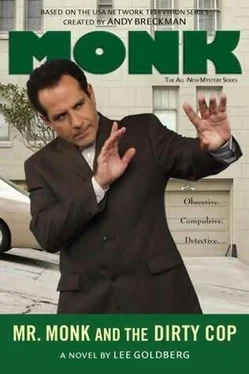


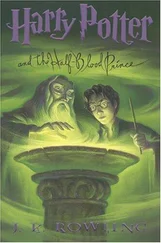
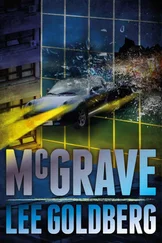
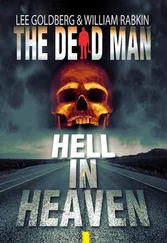

![О Генри - Фараон и хорал [The Cop and the Anthem]](/books/415669/o-genri-faraon-i-horal-the-cop-and-the-anthem-thumb.webp)




